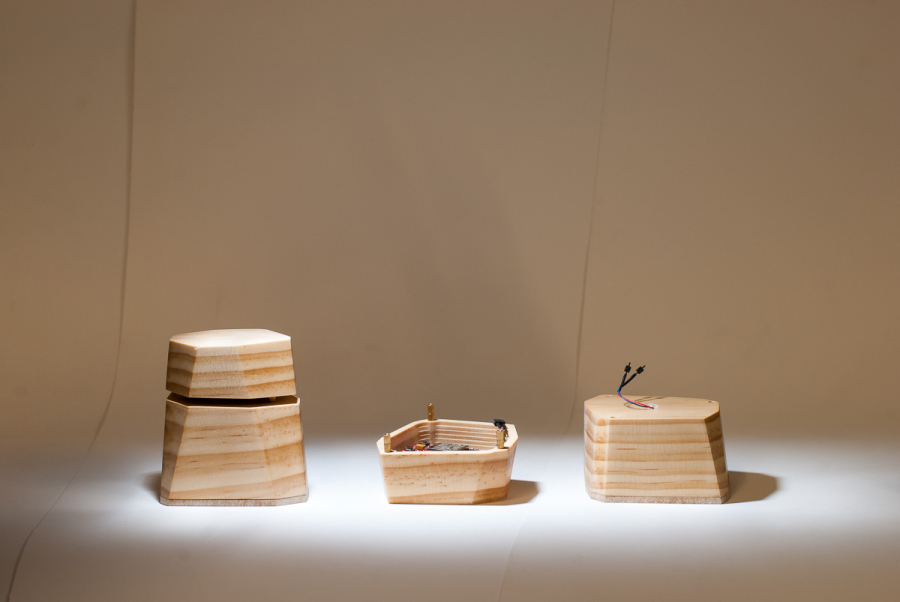I Gave the Internet a Wooden Heart
Custom electronics, pine wood
2017
Twitter / X update: Twitter has significantly reduced its API capabilities since April 2023, and introduced exorbitant fees for the use of its filtered streaming service. This has major implications for creative practitioners and researchers. As a result, the backend processing that Thing-onna-Stick relies on is now being revamped to tap into a more diverse range of data streams. On the bright side, the sentiment analysis engine is getting an update to process multiple languages (further work on East Asian glyphs is underway), and to allow emoji to contribute to the overall sentiment score.
More information on the effective demise of Twitter >
I Gave the Internet a Wooden Heart is another slow data initiative that attempts to make tangible the presence of digital data in our everyday environment. Similar to the Thing-onna-stick, each Wooden Heart derives data from a custom sentiment analysis engine, and translates it into slewing heartbeats that hasten or relax under various conditions – duress, joy, sadness.
The sentiment analysis engine fuses Finn Årup Nielsen's AFINN-111 dataset and VADER (Valence Aware Dictionary for Sentiment Reasoning), both of which are lexicon-based sentiment analysis algorithms.
While digitally-similar to how the Thing-onna-stick retrieves and processes information, the Wooden Hearts are an experiment in the aesthetics of interaction, and the aesthetics of the slow. By adopting physiologically-relatable feedback in the form of haptic, realistic heartbeats, the work draws on semiotic language to communicate the affective narrative of the digital data being processed, and in the process of using its limited, subjective language of interaction (heartbeats), engender a deeper reflection in its use. Each Wooden Heart sits silently on the charging platen, coming alive only when picked up, and almost requires the interactant to carefully pick up on the nuances of heartrate changes to develop a 'sense' of the customisable data stream.
Part of the rationale behind this work is also to acknowledge the biases that are inherent in the lexicons. Like the Happiness Index, the issues related to the authenticity of data processing algorithms are part of salient and pressing conversations we need to have as we engage with ever-deeper engagements with machine learning.
Work continues on the Wooden Hearts towards enabling a slow data practice for the public and creative practitioners.





